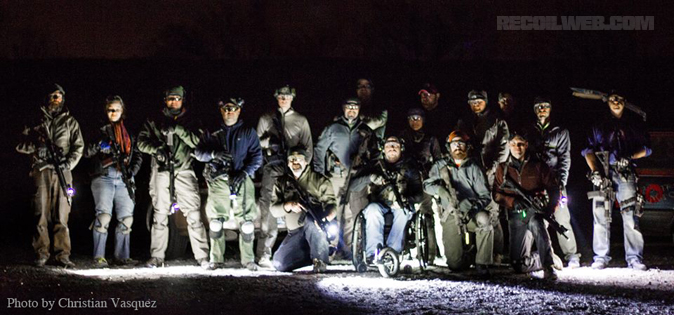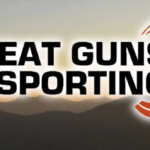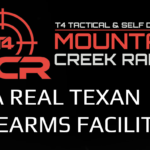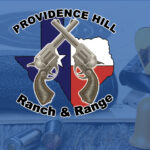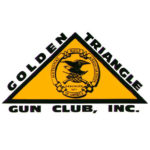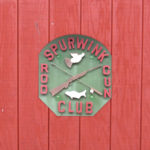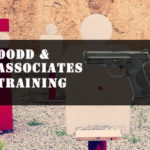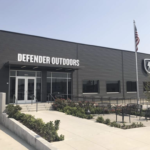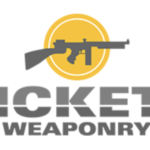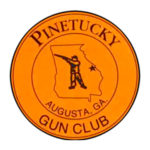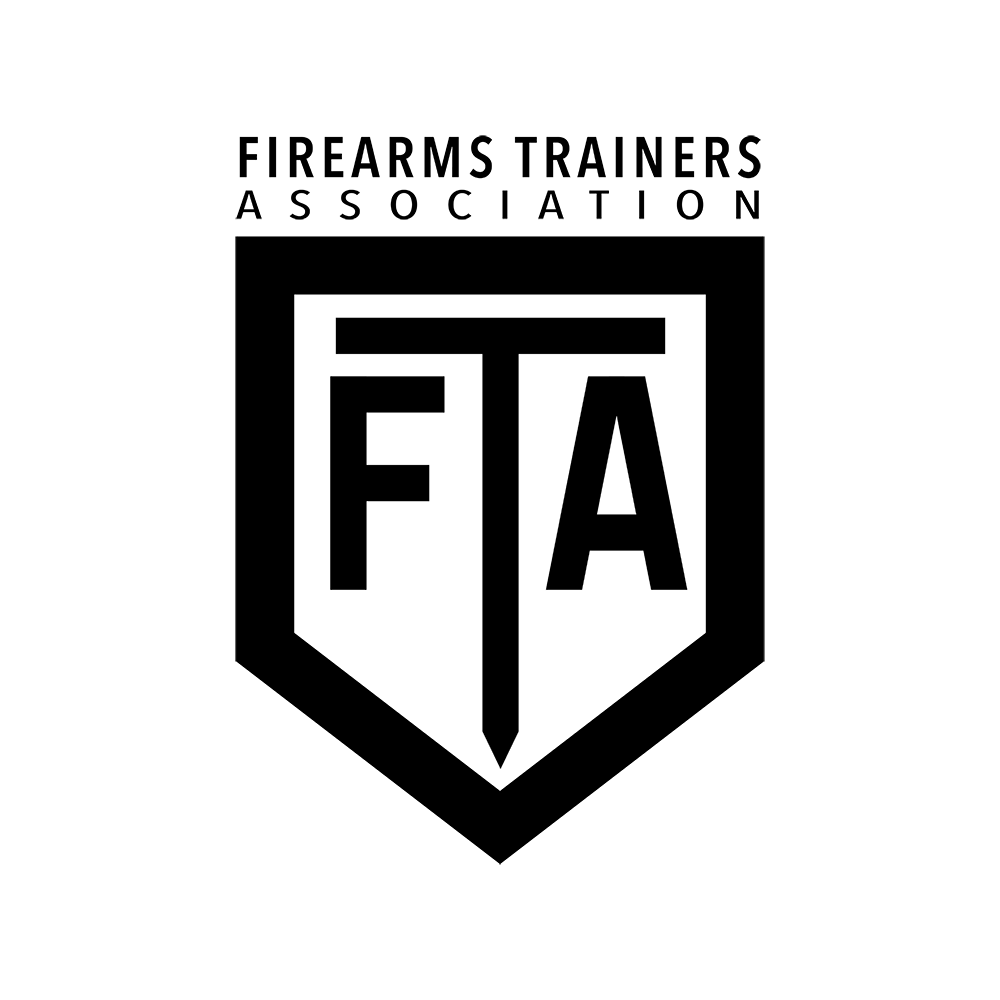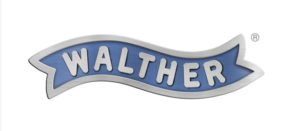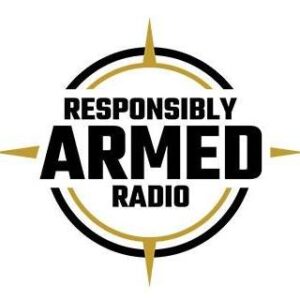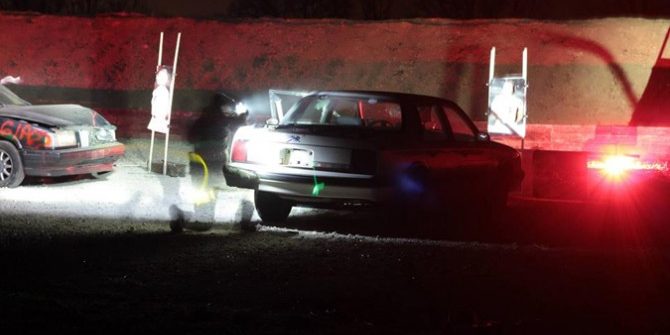

Sentinel Concepts ‘Vehicle Low Light CQB’
Story by Tatiana Whitlock
Photographs are courtesy of Shane Trammel and Christian Vasquez both talented photographers whom joined us to capture the class.
As originally posted in Recoil Web
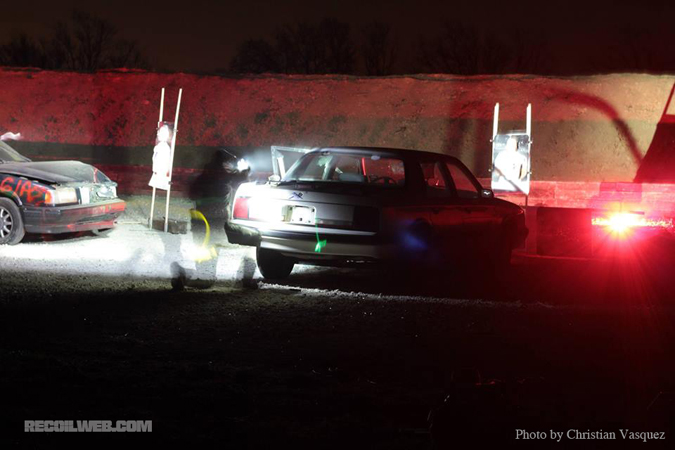
The Sentinel Concepts Vehicle Low Light CQB course was not a “shooting” class. It was training in the context of life.
Held in Grandview, TX and taught by Steve Fisher and Will Petty, the class was well worth the trip from Maine to attend. It was an action-packed and information-heavy 16 hours that left each student with pages of notes, a few well-earned bruises, and a greater appreciation for quality light sources.
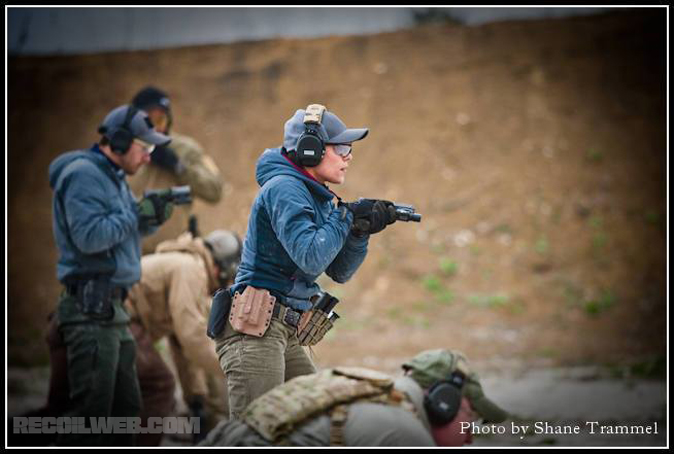
This class required students to show up with rifle, pistol, equipment and ‘A game’ (for complete gear list see below). We went straight into team movements, accuracy, proper use of light, weapon manipulation and safety in and around the vehicles. Days were broken down into daylight (skill building and classroom work) and nighttime (translation of those skills and that information into practical application lowlight CQB techniques).
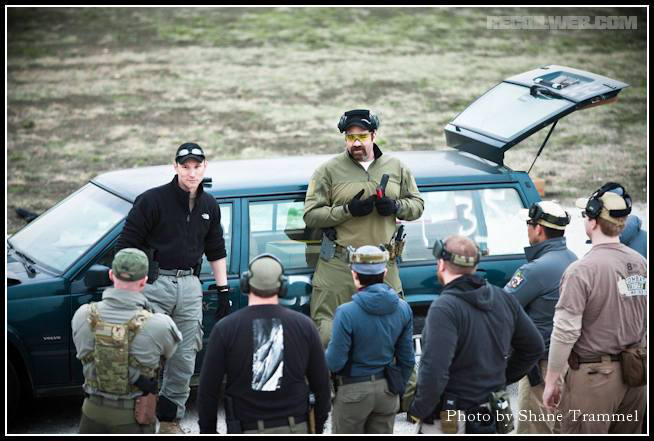
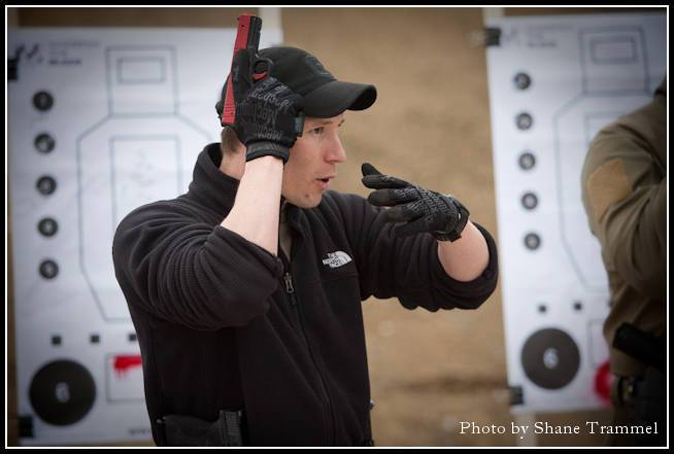
Instructors Fisher and Petty performed well as a balanced, professional team. Fisher, better known as the Yeti, needs little introduction. He is a former Magpul cadre member, the founder of MDFI, has over 15 years experience in law enforcement and of course now runs Sentinel Concepts. Petty brings an extensive background to his instruction as well. He has substantial experience at home and abroad, both in law enforcement and in various training capacities (including the Texas Peace Officers Association and regional academies).
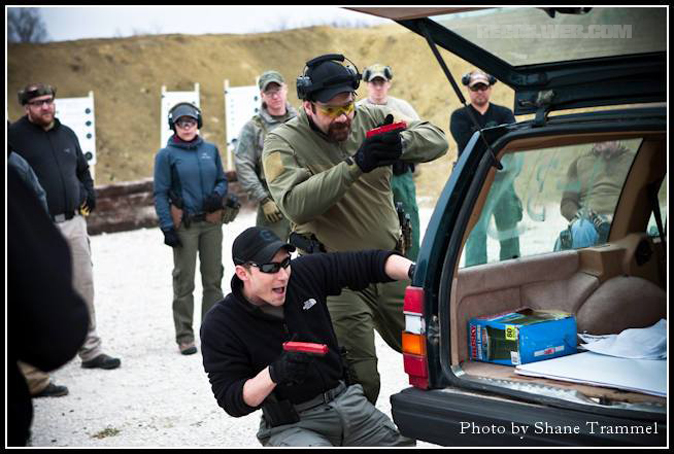
The pair makes for a succinct, complementary team that uses banter and sharp humor to keep otherwise intense range time light. Fisher’s trademark style and curriculum are built upon skillsets and techniques that maximize economy of motion and clear thought processes to safely get the job done. Together they introduced drills designed to mitigate excessive/unnecessary movement and brain clutter and made it clear they know what they’re talking about.
Training Day 1
There was no gym time needed during this two-day class. TD1 (Training Day 1) drills consisted of introducing students to standing and squatting positions, variations of prone, and the “shrimp” firing position. It was like a ballistic Crossfit WOD. Fisher and Petty’s “shrimp” is best described as assuming the fetal position to maximize protection provided by a vehicle tire or other small piece of cover while still placing accurate rounds on your target.
Gloves and kneepads were PPE must-haves given the broken glass and chunky gravel terrain of the range, which we were in constant contact with. Equal time on pistol and rifle was dedicated to working through these positions with special emphasis on transitions from strong to weak side. I was most grateful for the Magpul MS1 sling that was not only quite comfortable but also very easy to lengthen or shorten while in the motion of the exercise.
Thorough post engagement sequences were built into the position drills. Checking and confirming target status, looking for additional threats and assessing who might be beside and behind you were critical element. This necessity was made clear once things went dark as students used weapon mounted lights in the post engagement sequence. The awareness this exercise ground in also forced students to slow transitional movements down to maintain safety and SA.
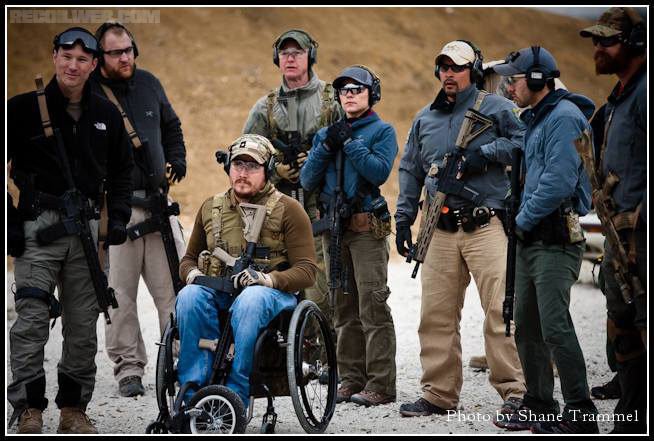
Enter the compressed ready, high port and temple index. Fisher and Petty demonstrated and made the case for each of these positions and their appropriate application. Safety was what registered most here. In confined spaces and high motion situations, virtually everything from low ready to parallel to the deck would cover each individual, teammates and bystanders with the muzzle.
Ready positions were illustrated with the use of SIRT pistols and cleared rifles. Inside a car, for example, the gun comes out of the holster and muzzle up, trigger finger indexed straight along the slide, and referenced against your temple or cheek bone. This allows the shooter to move the upper body and head with out risk of flagging anyone. High port was used for rifle during the short bursts of movement between points of cover again to eliminate risk. While some ranges or SOPs may not embrace these ready positions they are hard to argue with when put to use.
Though we all had a good grasp of these drills during daylight hours, nighttime added an entirely new dimension to the experience. This wasn’t my first low light class. But it was the first that had students shooting predominantly from what felt like the most awkward and unnatural of positions. Darkness didn’t help. Needless to say, TD2 put all it all into context and the pieces fell into place.
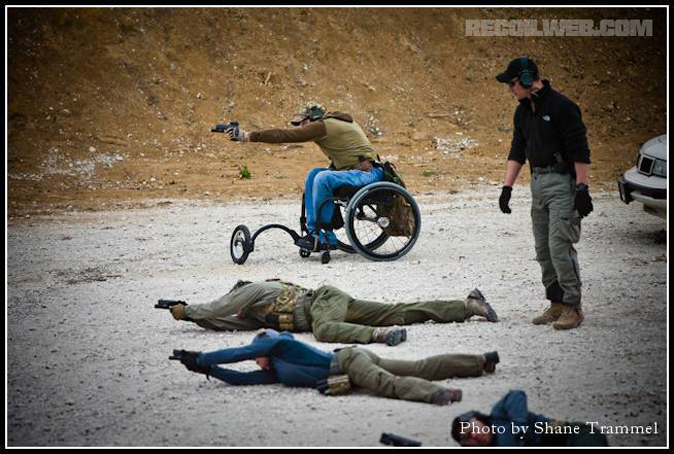
The topic of illumination was two fold: properly employing weapon mounted lights and tertiary lights, and the comparison between quality of light between gear brands. Side by side comparisons of lights made it evident that a light source with, a) more lumens, b) a distinct hot spot with wide corona, and c) color of the light itself made for a superior tool. Students were afforded the opportunity to use a range of equipment during the class, implements representing a wide spectrum of brands and price points.
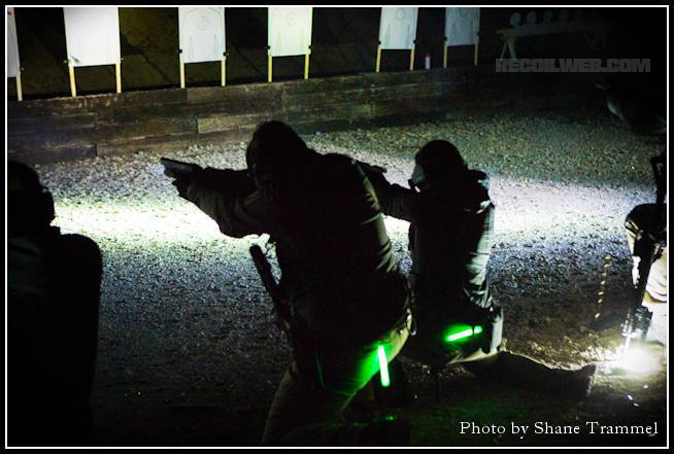
Interestingly, no one was rendered blind by the Surefire P3X Fury’s 1K lumens in small interior spaces, nor was paint melted off walls. Further, the outdoor demo where an instructor moved out past 80 yards drove home the point that the more light you have, the more options you will have to identify and engage a threat safely and accurately.
Training Day 2
Classroom schooling on TD2 consisted of a crib notes style overview of ballistics in relation to vehicles. Photos of different calibers and the car door use to test their effectiveness or ineffectiveness were eye opening. We translated this lesson downrange with a live fire demo through both car door and windshield glass. The results from a simple set up, where Fisher sat in the driver seat of the 4-door sedan while Petty gave aiming points on a paper target set at the drivers side front bumper with a secondary target placed directly behind it about 4’ back, could not have shocked us more.
Ultimately we compared the performance of 11 different rounds/calibers through the windshield, learning just how powerful a medium glass is for bullet deflection. Fisher would fire one round through the windshield and we would then evaluate the first and second impacts on paper targets, then we’d look at the next type of round.
The round that performed with the least deflection/deformation was the 124gr +P HST, while the round with the most was the123gr 7.62×39 SST. Similarly we used both pistol and rifle rounds on the sedans door and learned quite quickly just how unreliable that construction is for use as both cover and concealment.
The evening session involved equal parts dry practice and live fire while working in, getting out of, and moving around the vehicles. Drawing a pistol while negotiating a seatbelt with someone in the adjacent seat was a new experience for most of us civilians. Temple index couldn’t be trumped in this scenario for safely deploying and maneuvering out of the car into the next position of engagement.

We all got our cardio in during those evenings drills. Each drill was run by student pairs. We moved between three vehicles and engaged targets that required the utilization of all the shooting positions we covered in TD1. Under the stress of using the vehicle as cover, with multiple 3D ID Targets eerily motivating students to engage them, quickly made foreign positions second nature.
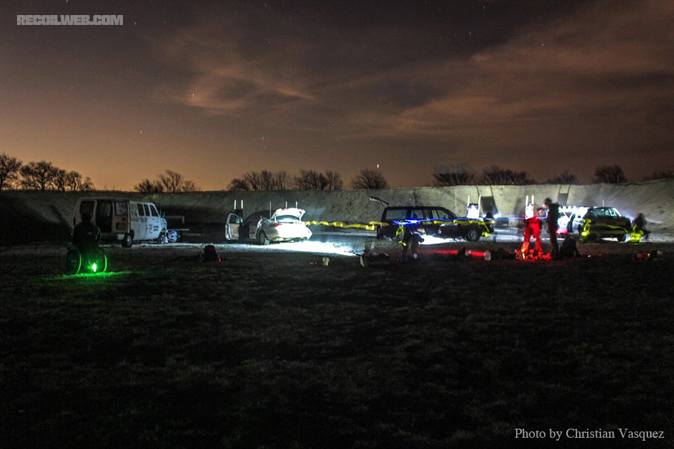
While the curriculum was largely geared towards law enforcement, the material was directly applicable to the everyday concealed carrying citizens. The value therein was immense. I may not be making traffic stops or running in pursuit of a criminal through a Walmart parking lot but I am now quite aware of how much I interface with vehicles on a daily basis. Parking lots, parking garages, walking down a sidewalk lined with metered cars are all spaces you are more vulnerable to a deadly attack, and attacks are mostly likely to occur at night. Understanding how to defend oneself around a vehicle, how to engage around and through them, and most importantly how to safely maneuver in and around them is extremely important when it comes to daily “real live.” It puts much of peoples’ concealed carry experience (or lack of it) and personal expectations into proper perspective.
Train in the context of your life.
